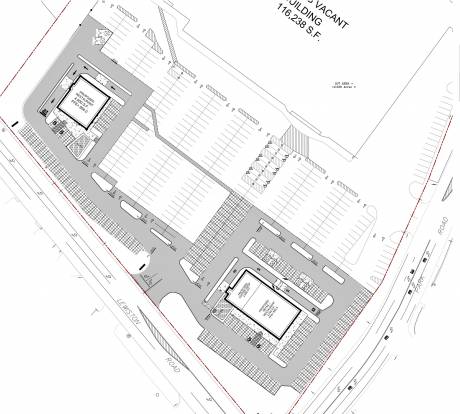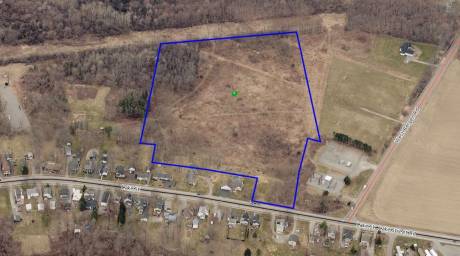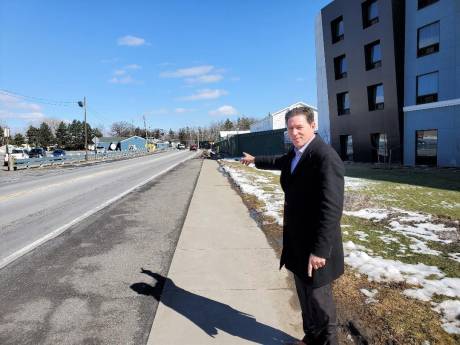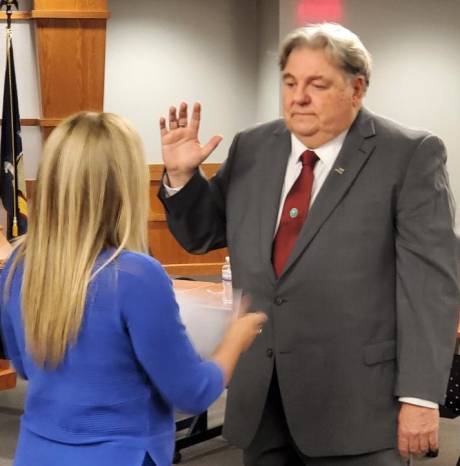Societal and philosophical changes in mental health treatment are causing the expected closure of Genesee County Mental Health’s Continuing Day Treatment program, but department officials are providing assurances that no one in need of these services will “fall through the cracks.”
Bob Riccobono, director of clinical services, and Nancy Hendrickson, supervisor of the CDT, on Monday presented a resolution to the Genesee County Legislature’s Human Services Committee that calls for the elimination of CDT programming within the next few months.
Reinforced through research conducted by Lynda Battaglia, Mental Health & Community Services director, and supported by the county’s Community Services Board, Riccobono shared a brief history of CDT and some factors that entered into the decision to shift to more clinical and therapeutic outpatient programs.
“Back in the 1950s, clients were treated in hospitals, but then we developed medications to the point where clients could then be released and go back to the communities where they came from,” he said. “But the problem was that the communities that were receiving these mental health clients, they didn't have the resources available. So, the state was giving aid to all the counties to develop community mental health centers. And part of that was to create day treatment programs for the more severe mentally ill.”
He said these programs worked very well in tandem with community residences to house people with mental health issues.
SOCIAL ACTIVITIES CURTAILED
“When I started my career back in the early 90s, we did all kinds of programs with the clients. We did camping trips, ceramics, woodworking – all kinds of different things like that. Then the state came and starting telling us you can't do those kinds of programs; it had to be more rehab-oriented,” he explained.
Those restrictions, combined with a decline in referrals from state hospitals, led to a decrease in the day treatment program population, he said, and because of that, “the funding dried up.”
“(Previously) it was the day treatment programs that were carrying the clinic. Now it's the exact opposite -- the clinic is carrying the day treatment program,” Riccobono said. “It’s not anything that the day treatment program is doing; that’s just how the funding is allocated.”
Riccobono said the state changed its philosophy – advocating for mental health clients to be integrated into the community. As a result, community residences closed and clients were treated in apartment programs or at their own apartments. Today, GCMH is just one of 13 agencies in New York with a CDT and most of them are downstate.
When the COVID-19 pandemic hit in 2020 – making it more difficult to coordinate group settings – the handwriting was on the wall, he said.
“That was sort of the final nail in the coffin because the past two years we couldn't do the same kind of treatment we were doing before,” he said.
PANDEMIC HURT PROGRAMMING
The GCMH CDT program, prior to the pandemic, ran five days a week from 10 a.m. to 2:30 p.m., with clients coming in from one to five days, Hendrickson said.
“During that time, we were in group rooms where we sat very close to each other,” he said. “Clients milled around together in the hallways. When the pandemic happened, we had to maintain social distancing. And we are not able to accommodate it (very well) with social distancing in our buildings.”
Hendrickson said the state began reimbursing the department for daily phone calls made to clients, so the strategy changed to a combination of in-person and telephone sessions.
“Now, we have to talk to the clients in order to bill five days a week,” she said. “And groups are small. People can’t congregate in the hallways like they used to. We cannot serve lunch like we used to because of the lack of space and, primarily, the six foot distancing.”
Staffing is another issue, Riccobono said.
“The other thing that's going on is that I can’t hire clinical staff in the outpatient clinic. It’s that much harder to hire people to go into the day treatment program because most of them never heard of that,” he noted.
MOVING STAFF TO OUTPATIENT CLINIC
Going forward, the plan is to take four GCMH employees from the day treatment program and incorporate them into the outpatient clinic.
“So, most of your clients are going to remain with their therapist, and also be seeing the same psychiatrist that they're seeing in the day treatment program,” Riccobono said. “In addition to that, because we're going to have more staff available in the outpatient clinic, we're going to look at some different programs that we can do, such as an intensive outpatient program.”
He said a long-term approach hasn’t been finalized yet, but GCMH leaders are reaching out to other places that offer intensive outpatient services to see how they operate.
Legislator Gordon Dibble, who serves on the Community Services Board, said CDT “is just a program that seems like it just run its course.”
“And in the shutting down of the program, everything I’ve heard seems to be well thought out,” he said. “So, it's going to get done and get done right.”
Hendrickson said that no employee will lose their jobs. Two full-time therapists will move to the clinic with one of them assigned to develop the intensive outpatient program.
ALL CLIENTS WILL BE PLACED
Riccobono emphasized that the state Office of Mental Health will not allow GCMH to close the program until every client has been placed and is seeing a therapist.
“No one is going to fall through the cracks,” he said.
The Human Services Committee voted in favor of the resolution, which indicates a loss of about $174,000 in anticipated state aid for CDT services. It also notes that staff reallocation will allow existing personnel expenses to be offset by Medicaid, Medicare and third-party insurance.
The resolution will be considered by the Ways & Means Committee on Wednesday.








